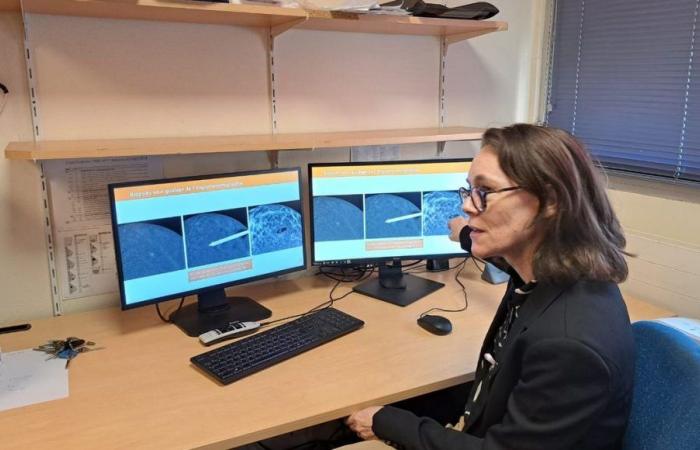At the Institut Curie, as in all cancer centers, imaging is omnipresent. From simple mammography to the most sophisticated MRI, images are essential for oncologists to adapt their treatments. Reporting by Tara Schlegel.
Artificial Intelligence, for several years now, has been a valuable aid to teams. Thus, Doctor Caroline Malhaire, radiologist and researcher, explains that the AI already “reads” the images resulting from examinations carried out on patients. And sometimes “intelligence” is capable of detecting what the human eye would not necessarily have seen.
There is, for example, the case of this patient who came for cancer in the right breast and whose left breast ultimately turns out to have a small tumor that the AI identifies. “In this specific case, not only did the machine see this somewhat suspicious shape, but it was able to tell us that it was found on image number 10 in the series.” This diagnostic aid obviously saves doctors a lot of time and also ensures that certain malignant lesions are not missed.
But progress in artificial intelligence does not stop there. As Professor Irène Buvat, research director at the CNRS and director of the Translational Imaging in Oncology laboratory at the Institut Curie/Inserm, explains in substance, software is capable of real feats. We already knew that AI “worked very well to automatically detect anomalies in images and automatically sort normal images from pathological images” but now, continues Professor Buvat, we are certain that AI can go further : “Artificial intelligence is very helpful because it can jointly manipulate and analyze a very large amount of data. Our brain has a limited analytical capacity; it can analyze between 4 and 7 variables by looking at the correlations but will not be able to go beyond. »
Whereas algorithms, as we have understood, easily juggle between thousands of details that they have stored.
Researchers have therefore managed, in collaboration with the manufacturers of these machines, to teach the AI to predict the outcome of a patient: their survival rate, possible complications, etc. This is particularly important for women with “triple negative” cancer. This cancer is the most dangerous of breast cancers with a 5-year survival rate which does not exceed 11%.
Several clinical trials are already underway to validate these predictions and tomorrow, we can already say, the AI will be able to know before the doctors and the patient what their response to the chosen treatment will be. These algorithms will then be an essential aid, not only for diagnosis, but for the care itself which will become more and more personalized.






